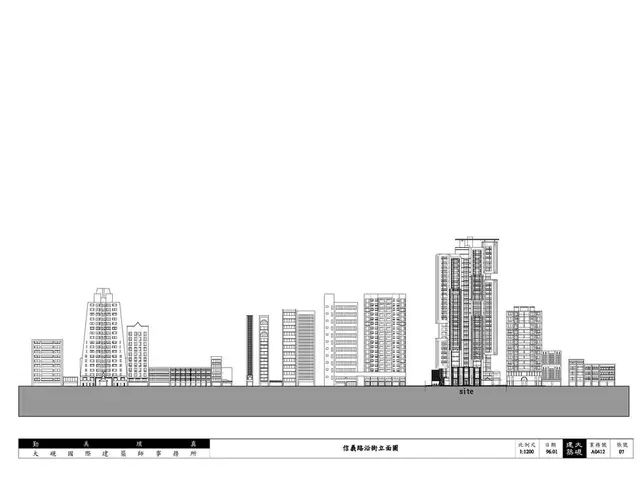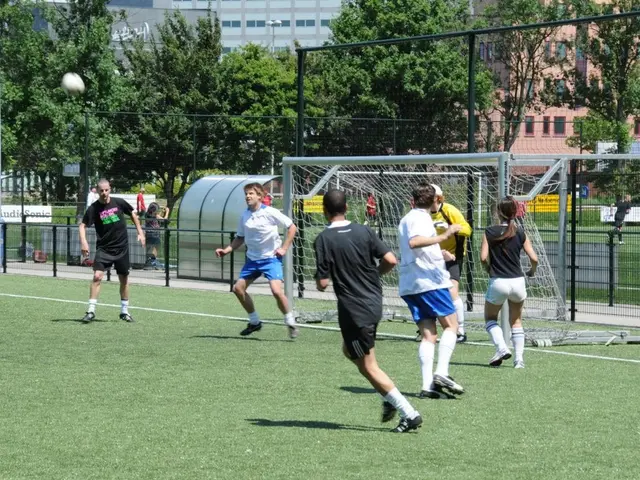The Push for an Ad Hoc Tribunal: A Breakthrough in the Ukraine Conflict
Allies of Ukraine consider approving a specialized court - Allies of Ukraine, as suggested by Kallas, aim to approval a specialized tribunal.
The wheels are in motion for an ad hoc tribunal dedicated to the prosecution of "aggression" against Ukraine, with the European Union (EU), Council of Europe, Ukraine, and various other states backing the initiative. This tribunal seeks to bring Russian political and military leaders to justice for their actions. The International Criminal Court (ICC) in The Hague will continue to handle war crimes prosecutions in the Ukraine war.
As of May 2025, Europe has given the go-ahead to the creation of a tribunal to try for crimes of aggression perpetrated by Russia. The tribunal's focus will be on indicting about 20–30 Russian political and military leaders responsible for these crimes, although key figures like Putin, Mishustin, and Lavrov cannot be prosecuted while they are in office due to functional immunity[2][3].
Kallas, in Warsaw, continues to advocate for the EU's 17th sanctions package against Russia, with hopes of adoption at the subsequent meeting of EU foreign ministers in June. The EU foreign ministers met in Warsaw on Wednesday for an informal gathering, with discussions on the Russian invasion of Ukraine being a primary focus on the second day of the meeting. For the first time, Germany was represented by the new Federal Foreign Minister, Johann Wadephul (CDU) during these discussions[4]. On Friday, EU foreign ministers are scheduled to depart for Lviv, western Ukraine, at the invitation of their Ukrainian counterpart, Andrij Sybiha, to mark the end of World War II[4].
Wadephul, on his inaugural foreign voyage as foreign minister, visited Paris and then Warsaw. Upon arriving in Warsaw, he spoke with his Polish counterpart, Radosław Sikorski, about the recent border control adjustments announced by the new German government. Sikorski acknowledged Germany's position on Thursday but expressed a need for "technical solutions" to minimize inconvenience for residents[4].
The new Federal Minister of the Interior, Alexander Dobrindt (CSU), announced tighter border controls on Wednesday to decrease refugee numbers. More federal police will be posted at Germany's borders, and asylum seekers will be denied entry[4].
Germany's measures have sparked dissatisfaction, particularly in neighboring countries such as Poland, the Czech Republic, and Austria. Polish Prime Minister Donald Tusk voiced concerns about maintaining "free movement" between Germany and Poland during a meeting with German Chancellor Friedrich Merz (CDU) on Wednesday[4].
As the proposed ad hoc tribunal moves forward, international opinions remain divided, with various international lawyers presenting different perspectives on its effectiveness[5]. Ukrainian Prime Minister Denys Shmyhal has been a steadfast supporter of the tribunal since the beginning of the Russian invasion[3]. The EU, particularly the European Parliament, and the Council of Europe have offered significant backing for the tribunal's establishment[1]. Other European countries, international lawyers, and experts continue to debate the ramifications and feasibility of the proposed tribunal.
[1] https://www.peacepalacelibrary.nl/publication/ukraine-international-criminal-court
[2] https://ec.europa.eu/commission/presscorner/detail/en/QANDA_237613
[3] https://www.rferl.org/a/ukraine-poland-germany-tusk-legal-ad-hoc-tribunal-putin/31942858.html
[4] https://www.reuters.com/world/Europe/germany-falters-over-ukraine-2025-05-26/
[5] https://www.jstor.org/stable/journal/33837114?seq=1#page_scan_tab_contents
- The European Union, along with the Council of Europe and several other states, have given the go-ahead for the creation of an ad hoc tribunal to prosecute acts of aggression against Ukraine.
- The announced tribunal aims to indict Russian political and military leaders for their involvement in the Ukrainian invasion.
- In the midst of the Ukrainian invasion, the European Parliament, like Ukrainian Prime Minister Denys Shmyhal, has been a strong advocate for the establishment of this tribunal.
- International opinions remain divided over the effectiveness of the proposed ad hoc tribunal, with various international lawyers presenting differing views.
- The implementation of stricter border controls by Germany, intended to reduce refugee numbers, has sparked dissatisfaction among neighboring countries such as Poland, the Czech Republic, and Austria due to concerns about free movement.







